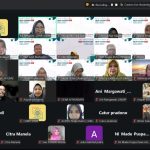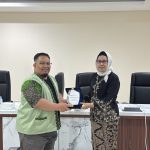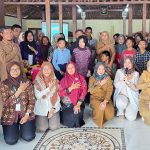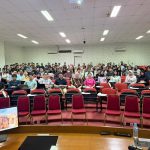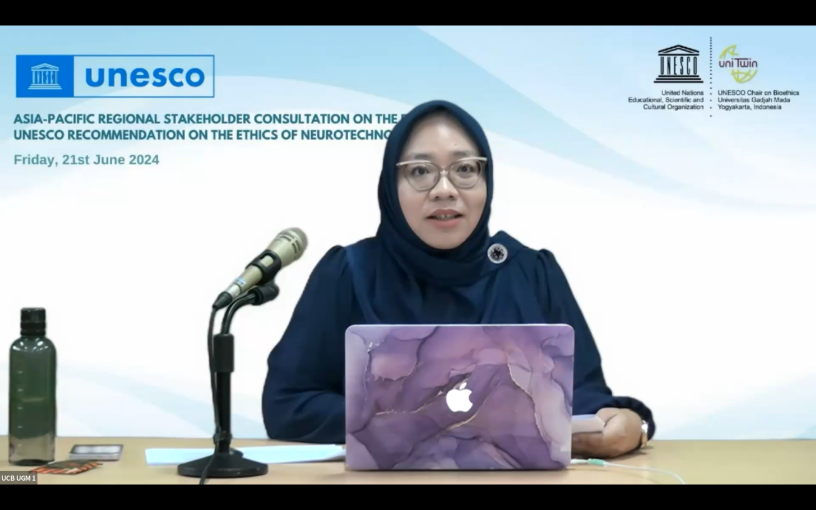
UNESCO Chair on Bioethics Universitas Gadjah Mada (UCB UGM), in collaboration with the UNESCO Jakarta office, had successfully held an Asia-Pacific Regional Consultation to discuss the draft UNESCO Recommendation on the Ethics of Neurotechnology. The event took place on June 21st 2024, virtually via Zoom Meeting platform. This consultation session was part of the process to develop the timely standard-setting instrument, UNESCO
recommendation on the Ethics of Neurotechnology. The 1st draft text of the recommendation had been produced by UNESCO Ad Hoc Expert Group (AHEG), through its 1st meeting earlier this year on 22nd – 26th April. This activity was in alignment and contributing to the realization of Sustainable Development Goals, particularly SDG 3 in ensuring healthy life and promote wellbeing for all at all age, SDG 10 in reducing inequality within and among countries and SDG 17 in strengthening implementation measures and revitalizing the global partnership for sustainable development.
This regional consultation was commenced with opening remarks from The Dean of Faculty of Medicine, Public Health and Nursing (FMPHN) UGM, Dr. Yodi Mahendradhata, M.Sc, Ph.D, FRSPH, and the Director of Center for Bioethics and Medical Humanities (CBMH), Dr. Dra. Retna Siwi Padmawati, MA, who also represented Prof. Dr. Yati Soenarto S, Sp.A (K)., Ph.D as the Chairholder of UNESCO Chair Bioethics UGM.
The UNESCO resource persons and also members of UNESCO AHEG attended this consultation session to provide background context and highlights for the draft recommendation text, as well as discussing interactively with participants. Dr. Dafna Feinholz Klip, as Chief of the Bioethics and Ethics of Science Section, within UNESCO’s Social and Human Science Sector, conveyed the process of preparing UNESCO’s draft recommendations on the Ethics of Neurotechnology. Dr. Ryota Kanai, experienced expert in neuroscience and member of UNESCO AHEG spoke on highlights of “Setting the scene: Neuroscience in the context of the draft UNESCO Recommendation”. Prof. Qingming Luo, experienced expert in neuroimaging and UNESCO AHEG member emphasized on the importance of integrating ethical frameworks into neurotechnology practice, and the role of international collaboration. The consultation session were led by two moderators dr. Rusdy Ghazali Malueka, Ph.D, Sp.S(K), expert neurologist, and dr. Wika Hartanti, MIH, bioethics faculty and executive manager of UCB UGM, both also teaching faculty at Master Bioethics UGM.
The event was attended by 58 invited participants who originated from 14 countries in Asia-Pacific region, and represented various stakeholders concerning neurotechnology development and implementation. Participants were from various backgrounds representing scientific community, healthcare providers, bioethicists, patient groups, and civil society. The interactive and lively consultation session facilitated participants’ inquiries and
feedbacks from various perspectives to improve the draft recommendation text. The discussion highlights important aspects about definition and scope of neurotechnology, and ethical concerns arising from it. Suggestions regarding values, principles and policy recommendations were made to encourage ethical, humane and sustainable development and practice of neurotechnology. Feedbacks and suggestions from this consultation session were documented, and reported back to UNESCO as representation of stakeholders’ perspectives from Asia – Pacific Region. Further details and information regarding subsequent process towards the final recommendation for Ethics in Neurotechnology is available in the UNESCO page (https://www.unesco.org/en/ethics-neurotech/expert-group?hub=83294#).
Keywords: Bioethics, Ethics, Neuroethics, Neurotechnology, Neuroscience, UNESCO, SDGs, SDGs 3, SDGs 10, SDGs 17.

